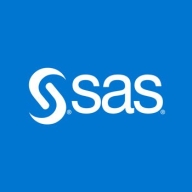

Informatica Intelligent Data Management Cloud (IDMC) and SAS Data Management compete in the data management category. IDMC is noted for its flexible architecture and robust data cleansing, giving it a slight advantage in user feedback.
Features: IDMC offers seamless data integration, flexible architecture for various data management styles, and robust data cleansing capabilities. SAS stands out for strong data quality, data integration options, and comprehensive analytics capabilities.
Room for Improvement: IDMC needs better integration with SAP applications, more preconfigured business rules, and improved user-friendliness and data stewardship. SAS faces challenges with its high cost, complex licensing model, and integration capabilities in cloud migration.
Ease of Deployment and Customer Service: IDMC offers flexibility in deployment across on-premises, hybrid, and cloud environments, but customer service varies with response times often criticized. SAS operates mainly on-premises and generally receives positive feedback on its customer service, although some users report slow response rates.
Pricing and ROI: IDMC is in a higher pricing tier, offering extensive features that provide value. SAS is also expensive but noted for its analytics and management capabilities. Both platforms present substantial ROI potential when effectively used at scale.
We see return on investment from this solution in terms of time; time reduction or cost benefits is what we are getting very good results from.
If they are unsure how to resolve an issue, they keep customers informed, providing updates about progress and ensuring communication with the product team to deliver accurate responses.
The response time is pretty good because we have someone in-house, who is an expert from Informatica, in our team who can help us with any sort of queries usually.
I would rate it as nine out of ten for Informatica PowerCenter kind of products or the Informatica integration products.
The support for SAS in Brazil is not the best one, but the support in Sweden is really good, as they visit the company and work to solve the issues.
I find Informatica Intelligent Data Management Cloud (IDMC) to be a sustainable and scalable solution.
As a SaaS platform, IDMC is quite scalable and provides complete flexibility.
Stability is crucial because IDMC holds business-critical data, and it needs to be available all the time for business users.
The observability concept in Informatica Intelligent Data Management Cloud (IDMC) needs improvement as the capabilities are not up to the mark compared to the industry.
One of my clients has a requirement; they want to integrate metadata into the process, which means, for example, if I just want to implement a new field into my database, that field needs to be reflected throughout, let's say, 200 mappings. This highlights the need for a data-driven approach.
I also want to see integration with other Informatica products, such as IICS, to leverage the metadata from EDC.
There is significant room for improvement, especially with regard to using a hybrid approach that involves both CAS and persistent storage.
It ranges from a quarter million to a couple of million a year.
The licenses are too expensive compared to before, which is why customers are now preferring other data metadata management tools like OneTrust, Collibra, and Azure Purview.
I think the costs are reasonable for the kinds of features that Informatica Intelligent Data Management Cloud (IDMC) has.
From my experience, SAS Data Management is an expensive tool.
In on-premise, we call it EDC for metadata management, while in cloud-based technologies, it is known as the Metadata Command Center, which serves the same purpose as EDC concerning CDGC.
Informatica Intelligent Data Management Cloud (IDMC) can connect to pretty much any application, including Oracle Analytics and Power BI, and it works quite seamlessly.
The platform's ability to pull in data from other platforms without the need for an additional integration tool enhances its appeal.
The best features I appreciate about SAS Data Management tool are that it's easy to create the flows and schedule data, and the tables are not too big, making it easy to control the ETL process, including user access which is also easy to manage in SAS.
SAS Data Management stands out because of its data standardization, transformation, and verification capabilities.
| Product | Market Share (%) |
|---|---|
| Informatica Intelligent Data Management Cloud (IDMC) | 3.6% |
| SAS Data Management | 0.9% |
| Other | 95.5% |


| Company Size | Count |
|---|---|
| Small Business | 42 |
| Midsize Enterprise | 24 |
| Large Enterprise | 134 |
| Company Size | Count |
|---|---|
| Small Business | 7 |
| Midsize Enterprise | 1 |
| Large Enterprise | 8 |
Informatica Intelligent Data Management Cloud (IDMC) integrates data quality, governance, and integration with flexible architecture. It supports multiple domains and a data models repository, delivering AI-enhanced data management across cloud-native platforms.
IDMC provides seamless integration and governance capabilities that support diverse data environments. Its comprehensive suite includes customizable workflows, data profiling, and metadata management. AI features, a data marketplace, and performance scalability enhance data management. While its interface poses challenges, its robust matching and cloud-native integration facilities are essential for complex data ecosystems. Users employ IDMC for connecting systems, ensuring data quality, and supporting data compliance but seek better pre-built rules, services, and improved connectivity, especially with platforms like Salesforce. Licensing, cost, and added AI functionalities are areas for potential refinement.
What are the key features of IDMC?IDMC is implemented across industries for data integration, metadata management, and governance. Organizations use it to connect systems, migrate data to cloud environments, and maintain data quality. They manage master data and automate business processes, facilitating data lineage and ensuring compliance with privacy regulations.
Every decision, every business move, every successful customer interaction - they all come down to high-quality, well-integrated data. If you don't have it, you don't win. SAS Data Management is an industry-leading solution built on a data quality platform that helps you improve, integrate and govern your data.
We monitor all Data Integration reviews to prevent fraudulent reviews and keep review quality high. We do not post reviews by company employees or direct competitors. We validate each review for authenticity via cross-reference with LinkedIn, and personal follow-up with the reviewer when necessary.